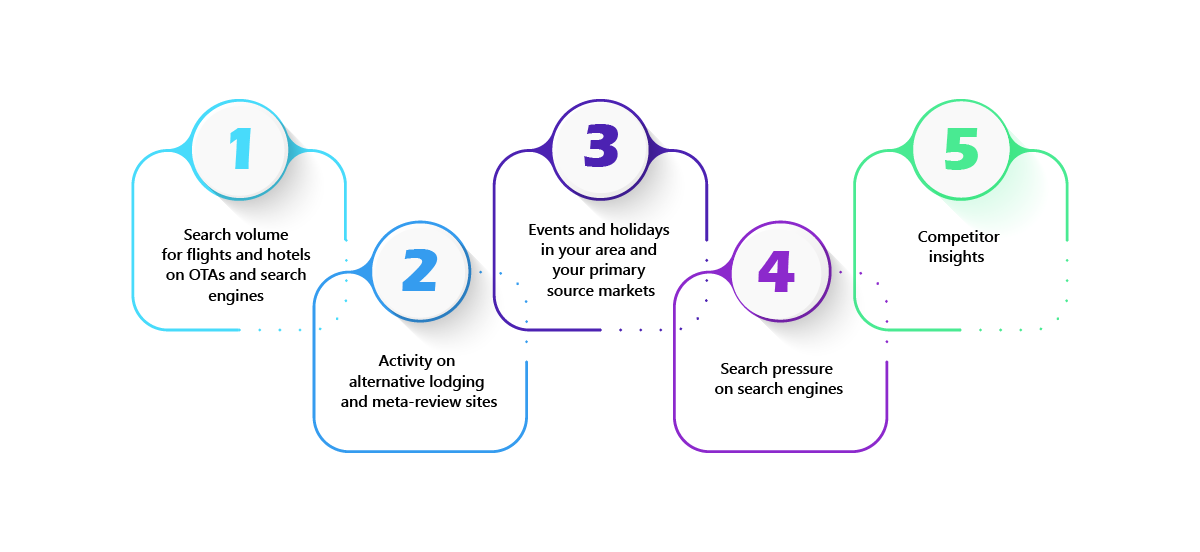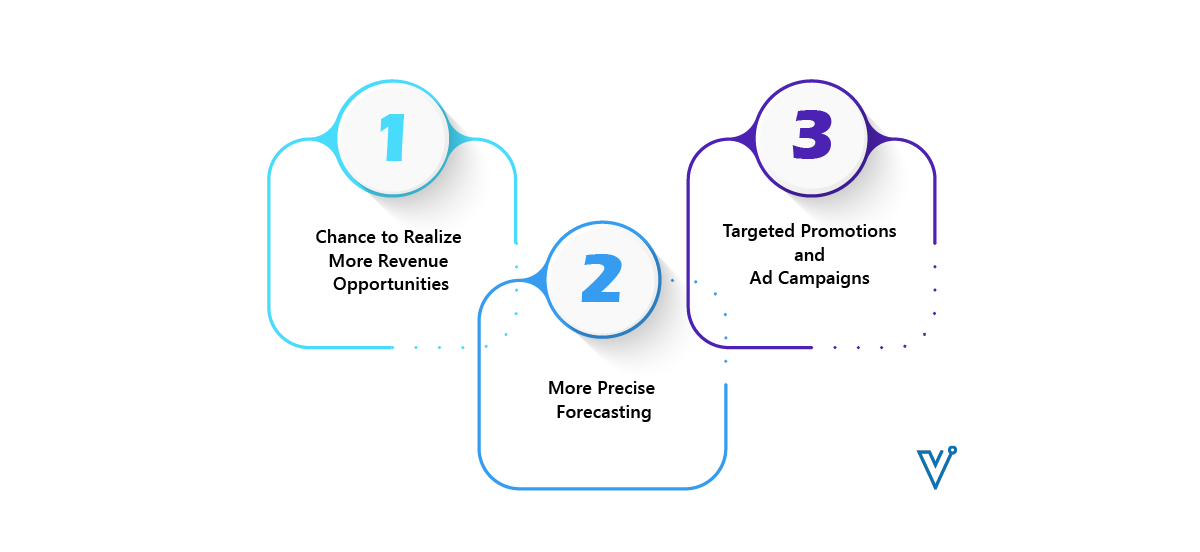The travel demand has been anything but predictable since 2020 for obvious reasons, with factors like smaller booking windows, shifting source markets, and changes in guest priorities. What used to be known as almost fixed travel trends was completely upset in early 2020. Today, due to external security situations, internal security issues in many countries, restrictions and countries’ entry requirements shape travel and destination choices more than holiday seasons and promotions.
To effectively manage your hotel’s revenue and distribution strategies, you must look beyond traditional historical data and focus on forward-looking data.
This article will explore why historical data is insufficient and the advantages of leveraging future-facing data.
Why you can’t rely on historical data for demand forecasting anymore
Due to geopolitical turmoil and crises in different parts of the world, booking windows are now drastically different as people prefer to reserve at the last minute to avoid losing money due to sudden new travel regulations. Even what used to be high and low seasons have changed as travelers avoid long-haul flights.
All these factors reduce the importance of historical data and its information. Yes, it can still indicate which results you can achieve at your hotel, which still holds value. However, due to the many market changes, live, future-facing demand data should now take center stage in your pricing strategy. It will be essential to determine optimal prices, win reservations, and generate maximum revenue in the future.
Booking windows are also drastically different as people prefer to reserve at the last minute to avoid losing money due to sudden new travel regulations. Even what used to be high and low seasons have changed as travelers avoid long-haul flights, and the meetings industry is only restarting slowly.
All these factors reduce the importance of historical data and its information. Yes, it can still indicate which results you can achieve at your hotel, which still holds value. However, due to the many market changes, live, future-facing demand data should now take center stage in your pricing strategy. It will be essential to determine optimal prices, win reservations, and generate maximum revenue in the future.
Also Read – Hotel Data Normalization: Cleaning Data for Better Hotel Reservation
Demand forecasting with forward-looking demand data
Forward-looking data is top-of-funnel data that allows you to predict upcoming demand and trends in the market. Real-time future-facing data is the key to quick responses to market shifts and seizing all chances to drive revenue.
Below, you’ll find some examples of forward-looking data:

Search volume for flights and hotels on OTAs and search engines
Analyzing search volume trends can provide insights into traveler interest and demand for your destination.
Activity on alternative lodging and meta-review sites
Monitoring guest reviews and ratings on platforms like TripAdvisor can help you gauge the popularity of your property and understand guest sentiments.
Events and holidays in your area and your primary source markets
Staying informed about local and international events can help you anticipate spikes in demand and adjust your pricing strategies accordingly.
Search pressure on search engines
Tracking search pressure can give you real-time visibility into how competitive your destination is and how likely travelers are to book.
Competitor insights
Understanding your competitors’ pricing for the coming days/weeks/months, availability and predicted arrivals to a destination can help devise your own pricing decisions.
Three Advantages of Leveraging Forward-Looking Data
Using future-facing data in revenue management brings many benefits. These are the three most important ones:

Chance to Realize More Revenue Opportunities
Future-facing data shows you the earliest signs of demand, e.g., people’s flight or hotel searches. Getting a heads-up on this early on allows you to adapt your rates to capitalize on demand shifts. Supply your revenue management system (RMS) with this information for automatic rate updates.
More Precise Forecasting
As long as historical data remains unreliable, future-facing data is the best way to create reliable forecasts. The external information will create a broader and more precise result.
Targeted Promotions and Ad Campaigns
Source market data reveals where travelers are researching your destination right now. It can also reveal which guest demographic is searching, how long they want to stay, and which days of the week they wish to travel. And this information is very handy for creating targeted promotional/ad campaigns.
Forward-looking data is essential for creating a clear picture of the market and building long-term pricing strategies. It allows you to get ready for travel rebound and regular travel seasons in the future. But you can do way more with future-facing data. For example, you can use it to update your prices in real time whenever demand shifts continuously. Whether you choose to manually collect and analyze this data or leverage an RMS for automated updates, embracing future-facing data is essential to manage demand in the hospitality industry.







